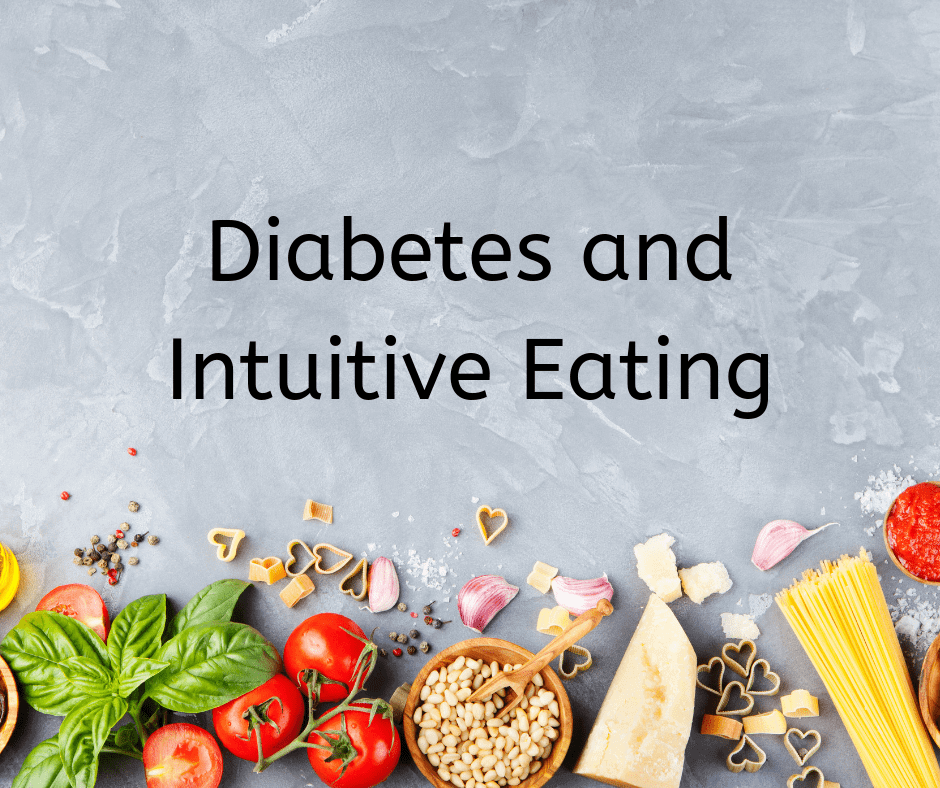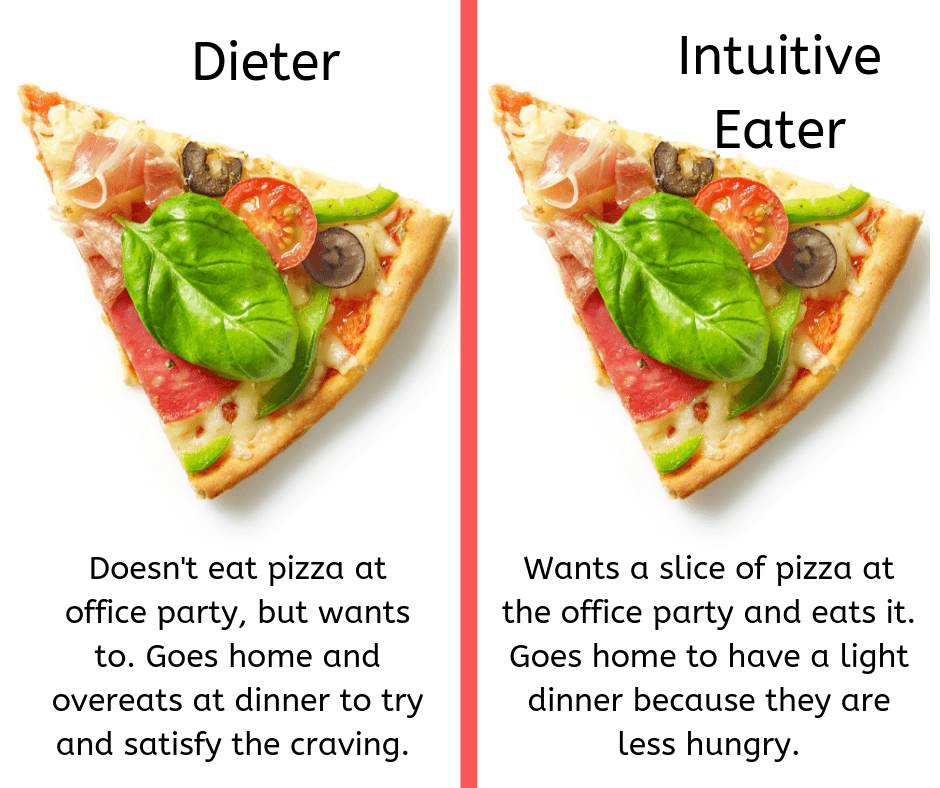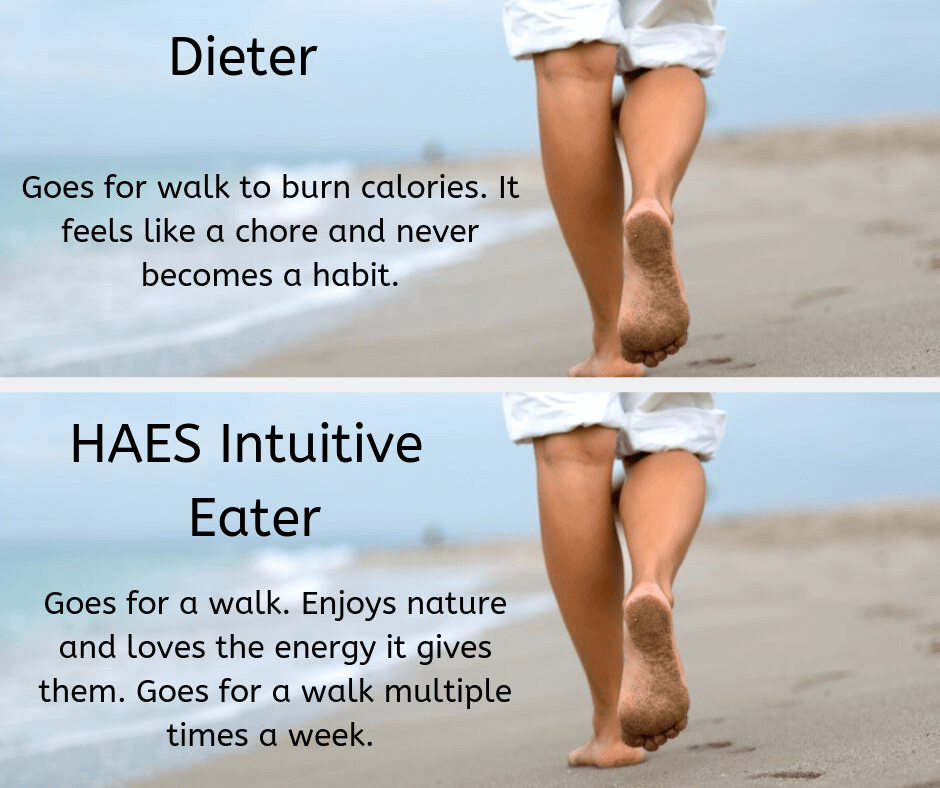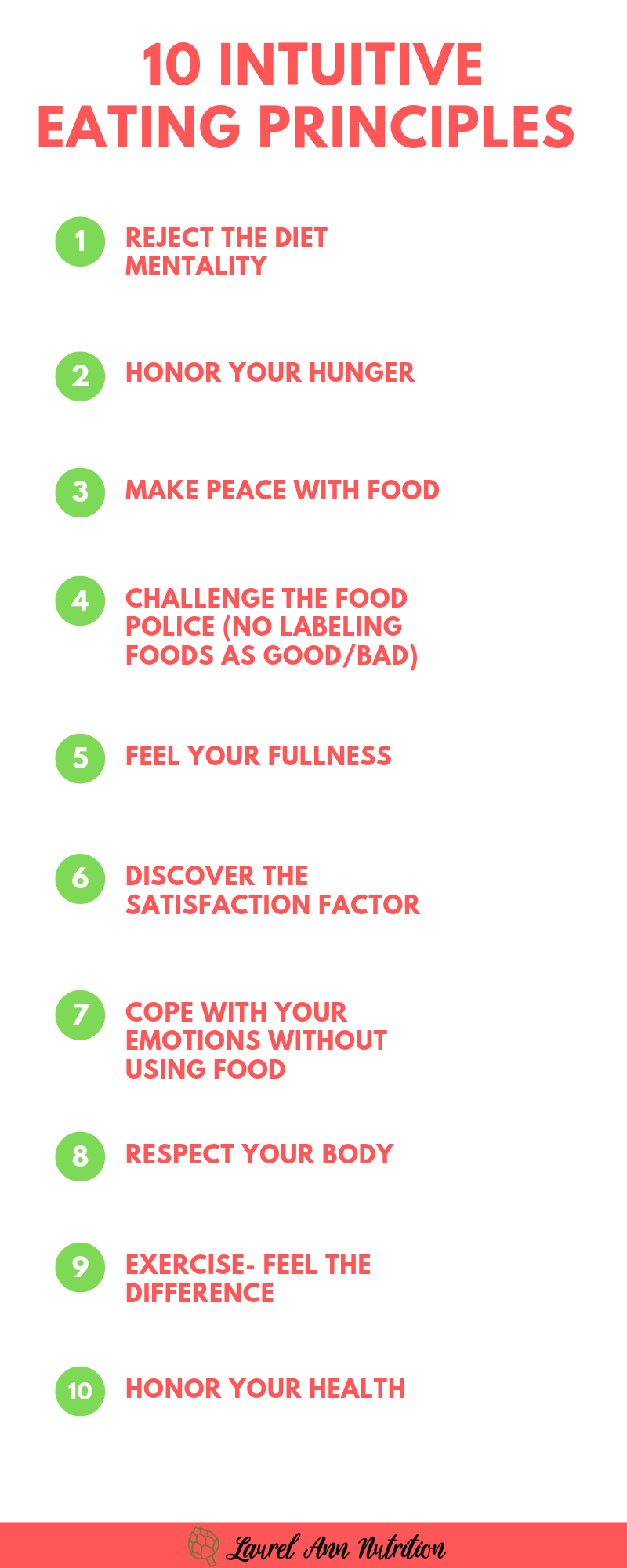Diabetes and Intuitive Eating: Why Diets Don’t Work - And What Actually Does
Updated 2025
If you live with diabetes, the idea of ditching diets can feel impossible.
You might think:
“That sounds nice… but my blood sugars would go wild.”
Here’s the truth:
You can support your blood sugar without dieting, restriction, or fear — and for many people, intuitive eating actually works better.
This guide breaks down why, using a Health at Every Size (HAES) perspective and the latest research.
All information provided is intended to be used for informational purposes only. This article is not medical advice nor is it intended to replace medical advice.
Why Dieting Doesn’t Work (Especially With Diabetes)
Diets promise control — but they often harm your metabolism, hunger cues, mental health, and blood sugar stability.
1. Dieting Slows Metabolism
Research consistently shows that food restriction lowers metabolic rate. This is why most people regain weight after dieting — often more than they lost.
This isn’t failure. It’s biology. (1, 2, 3, 4).
2. Dieting Ramps Up Hunger
Restriction increases hunger hormones and intensifies cravings (5). Your body is simply trying to protect you. Studies show that we even out our food intake over time, typically 4-7 days (6).
For example, a dieter may skip breakfast, have a light lunch, and even a light dinner. Over the next few days, as the appetite increases, the dieter will find themselves eating more and more. So, over a week’s time there is no decrease in eating and calorie intake may have actually increased to more than before the diet started.
3. Dieting Can Trigger Binges
Avoiding carbs doesn’t eliminate cravings — it amplifies them, often leading to overeating fast-digesting foods that spike blood sugar.
Dieting increases consumption of caloric food (6, 7). Crazy right? A craving is a way for our body to tell us what nutrients we need. When we deny this craving our bodies find a way to make up for this nutrient need. This happens by causing us to eat other foods that do satisfy this nutritional need.
4. Dieting Predicts Long-Term Weight Gain
People who diet repeatedly tend to gain more weight over time than people who don’t restrict. In a review of 25 studies looking at dieting and measured weight over time, all but one found that dieting/restrictive eating individuals had significant weight gain (8).
5. Dieting Harms Mental Well-Being
Common side effects include:
food guilt
stress
shame
constant thoughts about food
fear of “messing up”
I could write an entire article just on this topic. But let’s stick to the basics… Studies in animals show that diets impair brain function, stress response, and how things are processed (12). Dieting may also cause or worsen depression (12).
Inspired by Intuitive Eating A Revolutionary Program That Works
The takeaway
👉 Diets don’t work. And you deserve more peace than they offer.
What About Mindful & Intuitive Eating?
Contrary to the myths, intuitive eating (IE) is not “eat whatever you want, whenever you want.”
It’s about:
Mindful Eating
Being present with your eating experience. Noticing without judging.
Intuitive Eating
Using hunger, fullness, satisfaction, and emotions as internal guides — not external rules.
This approach rebuilds body trust — something dieting erodes.
Diabetes 101: Why Type Matters
Type 1 Diabetes
The body makes no insulin. Insulin dosing + frequent monitoring are essential.
Type 2 Diabetes
The body doesn’t use insulin well. Lifestyle, medication, and sometimes insulin support blood sugar.
Prediabetes
Higher-than-normal blood sugar. A chance to intervene gently.
Gestational Diabetes
Pregnancy-related insulin resistance. Usually resolves after birth but increases future risk.
Understanding your type helps you apply intuitive eating safely and effectively.
Why This Matters for Intuitive Eating
Understanding which type of diabetes you have helps you approach intuitive eating with confidence. Every body has different needs — and so does every type of diabetes. But no matter which type you’re managing, the foundation is the same: tuning into your body’s cues, eating consistently, and finding a way of eating that supports both your blood sugar and your overall wellbeing.
Intuitive eating isn’t about ignoring your health — it’s about learning to work with your body instead of against it. When you understand what’s happening inside your body, you can make gentle, flexible choices that help your blood sugars stay steady without falling back into dieting or restriction.
❓ Common Questions About Intuitive Eating & Diabetes
“Will my blood sugar go out of control?”
Not when IE is combined with awareness and gentle structure.
“Can I still enjoy carbs?”
Yes. Carbs + protein/fat/fiber = smoother blood sugars.
“Can people with type 1 do this?”
Yes — with personalized insulin adjustments and medical guidance.
“What if I overeat?”
That’s part of learning. IE values curiosity over perfection.
What the Research Says About Intuitive Eating and Blood Sugar
Research on intuitive eating and diabetes is still growing, but several studies have already shown promising connections between intuitive eating, mindful eating, and improved metabolic or blood sugar–related outcomes.
Note that a HAES perspective tells us that health improvements can occur across the weight spectrum, regardless of whether weight changes happen. With that in mind, here’s what other research shows:
CW: weight changes
Mindful eating + diabetes education improves food choices and blood sugar (Adults with Type 2 Diabetes)
A study where adults with type 2 diabetes received mindful eating training alongside diabetes self-management education found healthier food choices, some weight loss, and better blood sugar management. This wasn’t a pure intuitive eating intervention, but it supports the idea that non-restrictive, awareness-based eating can improve glycemic control. (13)
Intuitive eating linked to better postpartum glucose in gestational diabetes
In a clinical cohort study, women with gestational diabetes who scored higher on intuitive eating tended to have lower fasting glucose levels 6–8 weeks postpartum, along with lower weight and BMI. (14)
Intuitive eating associated with better glucose control in type 2 diabetes
Another study found that higher intuitive eating scores were connected with better blood sugar control in adults with type 2 diabetes. This suggests that tuning into hunger, fullness, and satisfaction cues may support steadier glucose responses. (15)
Strong link between intuitive/mindful eating and glycemia in adolescents with type 1 diabetes
A case-control study found that adolescents with type 1 diabetes who scored higher on intuitive eating had significantly lower HbA1c levels. In fact, certain intuitive eating subscales were strongly associated with improved glycemic control. (16)
Mindfulness-based eating approaches support metabolic health
A randomized clinical trial showed that a mindfulness-focused eating program improved metabolic markers and eating behaviors. While not specific to diabetes, these findings support the idea that flexible, non-restrictive eating approaches can positively influence metabolic health — which overlaps closely with intuitive eating principles. (17)
Intuitive eating and overall metabolic health (PREDISE Study, 2025)
A large Canadian study found that people with higher intuitive eating scores tended to have better overall diet quality and healthier metabolic markers. While they did measure blood glucose, they did not find strong or consistent links between intuitive eating and glucose levels. This is helpful to note — the research looks promising, but it’s not yet definitive for blood sugar outcomes. (18)
What is Mindful and Intuitive Eating?
Mindful Eating: paying attention to the present moment of eating without judgment
Have you ever caught yourself eating while watching TV… just look down and find your plate is empty? Not remembering where all of that food went? That is the opposite of mindful eating.
Intuitive Eating: involves mindful eating while taking note of physical and emotional sensations experienced while eating
Intuitive eating takes mindful eating to the next level by including awareness of hunger levels and emotions while eating. Like mindful eating, this is all done without judgment!
HAES (Health at every size) DIABETES
Now, while weight loss may occur with intuitive eating, it is certainly NOT the focus. The focus from weight needs to be removed before you can truly eat without judgement.
Easier said than done but first thing to do is throw away the scale!
Next, it is important to learn that weight loss is not necessary for blood sugar management. You can learn more about this in our Health At Every Size with Diabetes blog post.
By removing the focus from weight you can focus on what makes your body feel great.
Individuals who used HAES and intuitive eating have shown to have improvements in blood pressure, cholesterol, depression, and self-esteem compared to dieters (19).
Intuitive Eating- Where Do I Start?
Yay! You have decided to become an intuitive eater but where to begin… Lets first take a look at the 10 principles of intuitive eating.
How to Start Intuitive Eating With Diabetes
1. Give Yourself Permission to Eat
No “good” or “bad” foods. Just choices, patterns, and learning.
2. Listen to Hunger & Fullness Cues
Try a hunger/fullness scale or check in at the start and midway through meals.
3. Choose Foods That Support Blood Sugar and Satisfaction
Balanced meals feel better — physically and emotionally.
4. Watch Blood Sugar With Curiosity, Not Fear
Patterns matter more than numbers.
5. Get Support When You Need It
A diabetes-informed IE coach or dietitian can help you personalize this safely.
🌱 Gentle Nutrition for Diabetes (Without Rules or Tracking)
Gentle Nutrition is the last principle of IE — because it works best after rebuilding trust.
Here’s what it looks like:
1. Prioritize Consistent Eating
Eating every 3–4 hours supports:
steady blood sugar
stable mood
fewer cravings
less overeating
2. Pair Carbs With Protein, Fat, and Fiber
The Balanced Plate Formula:
Carb + Protein + Fiber + Fat = Blood Sugar Harmony
Examples:
🥖 Bread alone → quick spike
🥪 Balanced sandwich → steadier curve
3. Eat Enough
Undereating raises stress hormones and blood sugar.
Your body functions best when it’s properly nourished.
Try one of these this week:
Add back a food you’ve been restricting
Pair your carbs rather than avoid them
Look at blood sugars with curiosity
Check in halfway through a meal
Order your favorite meal and enjoy it fully
You deserve ease, confidence, and freedom with food.
✨ Let’s wrap this up!
Intuitive eating offers a non-diet, weight-inclusive approach to diabetes care that supports blood sugar patterns and mental well-being.
It’s sustainable, empowering, and adaptable for type 1, type 2, prediabetes, and gestational diabetes.
Ready to try it with support?
Download my Eating Awareness Journal or schedule a free 1-on-1 call to explore how intuitive eating can fit your life with diabetes.







